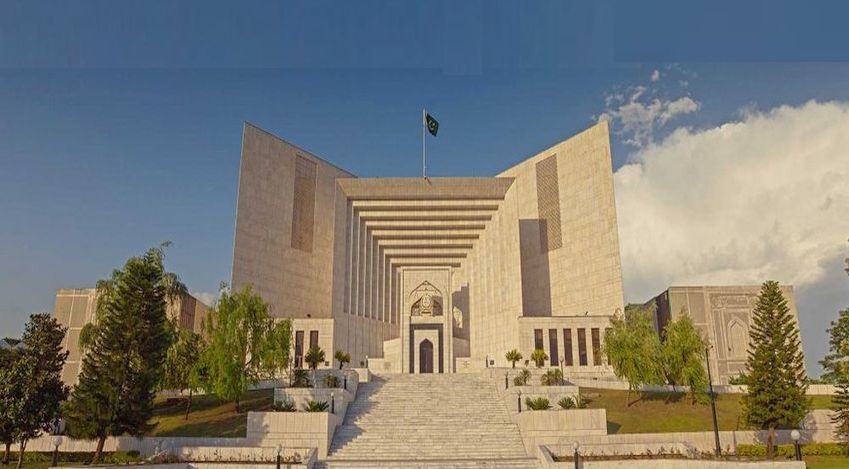The Medical Evidence is supportive one but alone it is insufficient to convict someone when the Eyewitness testimony is unreliable --- Supreme Court of Pakistan
Islamabad 16-08-2024: In a significant ruling, the Supreme Court of Pakistan has acquitted Muhammad Jahangir, a death row inmate, who had been convicted and sentenced to death by the Sessions Judge, Bahawalnagar, for the murder of Mst. Siddiqan Bibi. The Court's decision to overturn the conviction was based on a series of legal findings that questioned the reliability of the prosecution's case.
The judgment was delivered by a bench comprising Mr. Justice Jamal Khan Mandokhail, Mr. Justice Syed Hasan Azhar Rizvi and Mr. Justice Musarrat Hilali. The Court found that the prosecution had failed to establish guilt beyond a reasonable doubt, a cornerstone principle in criminal law. Jahangir had been accused of murdering Mst. Siddiqan Bibi, who was married to his brother, following an alleged altercation over a monetary demand.
The Court's analysis revealed significant contradictions in the statements of the prosecution’s eyewitnesses, who were the brothers of the deceased. These contradictions led the Court to doubt the credibility of their testimony, which had been a critical component of the case against Jahangir.
The Court noted that the prosecution had not convincingly established a motive for the crime. While the trial Court had initially suggested that an altercation over Rs. 2,000 could have been the motive, the Supreme Court found this reasoning unconvincing, particularly given the lack of corroborating evidence.
The Court also took issue with the unexplained delay of three hours in filing the First Information Report (FIR). The delay, despite the close proximity of the police station to the crime scene, raised doubts about the authenticity of the prosecution’s narrative.
While the medical evidence corroborated the injuries described in the FIR, the Court emphasized that such evidence alone is insufficient to convict someone when the eyewitness testimony is unreliable. The judgment underscored that medical evidence is supportive but cannot independently identify the perpetrator.
In its ruling, the Supreme Court reaffirmed several key legal principles, including the presumption of innocence and the requirement for the prosecution to prove guilt beyond a reasonable doubt. The Court cited multiple precedents where contradictions in eyewitness testimony and failure to establish a motive have led to acquittals.
The judgment has been hailed as a reaffirmation of the principle that the benefit of the doubt must always go to the accused. The Court's decision also highlights the judiciary's ongoing commitment to ensuring that convictions are based on credible, consistent, and convincing evidence.
As a result of the judgment, Muhammad Jahangir has been acquitted of all charges and ordered to be released immediately, provided he is not required in any other case. The petition filed by the complainant seeking an enhancement of Jahangir’s sentence was dismissed as a natural consequence of the acquittal.
This ruling serves as a reminder of the high standards of proof required in criminal cases and the vital importance of protecting the rights of the accused under the law.
Powered by Froala Editor








